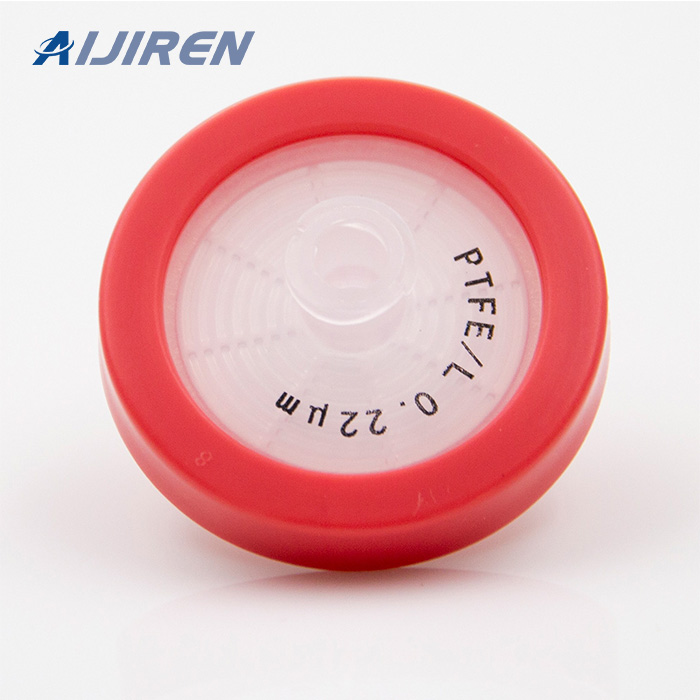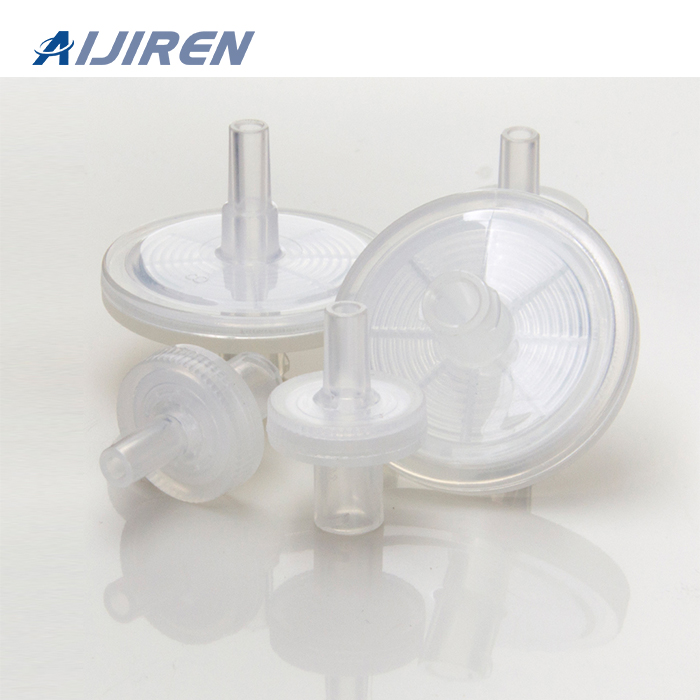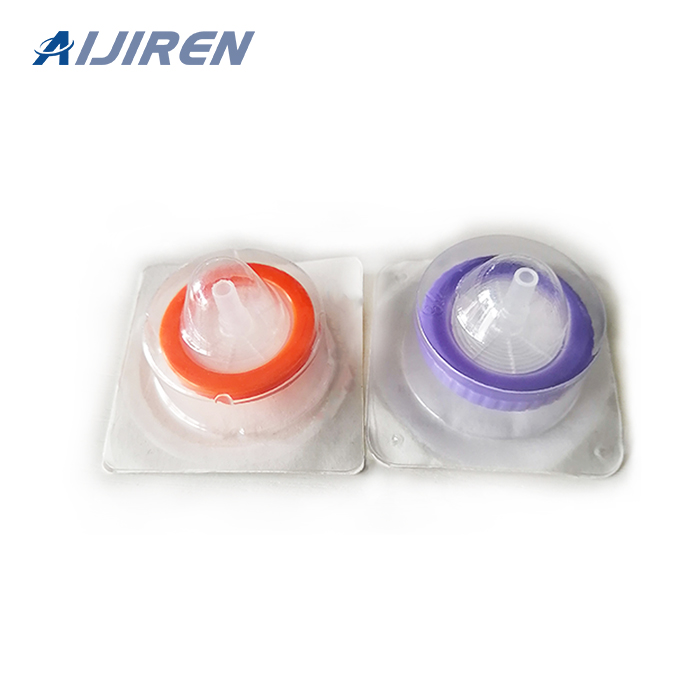


Low protein binding and extensive drug compatibility for critical applications Saves time and money with fewer filter changes per sample volume 142 and 293 mm discs feature printed tab for instant recognition of pore size and lot number Application Suited for biological, pharmaceutical, and sterilizing filtration requirements
Polypropylene syringe filters Chemically resistant membrane with low protein binding. • Hydrophilic membrane for aqueous or organic sample matrixes • Use with protein or peptide-based assays The hydrophilic polypropylene membrane is easily wetted with water and does not require pre-treatment with alcohols. Compatible with biological samples.
Acrodisc® Syringe Filters. Pall Laboratory. of filter media: hydrophilic nylon membrane for excellent chemical compatibility with esters, bases, and alcohols, without pre-wetting; GHP (hydrophilic polypropylene) membrane for low protein binding; and hydrophilic PVDF (polyvinylidine fluoride) membrane for use in aqueous and non-aggressive,.
GHP acrodiscs®- Hydrophilic propylene c membrane suitable for aqueous, organic and has low protein binding. nylon acrodiscs - Hydrophilic nylon membrane GHP acrodiscs Gf and nylon acrodiscs Gf - Designed with a glass fiber prefilter over the membrane for hard to filter samples laden with particulate matter.
Bio-Rad's Sequi-Blot PVDF membrane delivers outstanding performance in protein sequencing, providing the binding capacity to sequence even low-abundance samples. Nitrocellulose Membrane, 0.45 µm Bio-Rad's nitrocellulose is a proven medium for western, northern, and Southern blotting.
Is it a PVDF membrane filter or MCE or immobilin-p membrane, binding of protein depends upon the type of membrane used. PVDF durapore hydrophilic membranes are better for low binding of proteins. Cite
The proteins bind to the membrane due to hydrophobic and electrostatic interactions. The protein binding capacity is 209 µg/cm 2. PVDF membranes. The PVDF membrane (0.2 µm pore size, low fluorescence) in this stack has higher binding capacity than nitrocellulose. The PVDF membrane is preactivated and ready for use without any pretreatment
Durapore membrane filters are found to work well for punching into scintillation vials and there is complete recovery of the radioactivity retained with the filters. In the protein kinase assay the background radioactivity is very low (< 200 cpm) and in the phorbol ester binding assay the nonspecific binding is less than 1%. Thus, these low
Western blotting is an important procedure for the immunodetection of proteins, particularly proteins that are of low abundance. This process involves the transfer of protein patterns from gel to microporous membrane. Electrophoretic as well as non-electrophoretic transfer of proteins to membranes was first described in 1979.
These devices are used for simple, reliable concentrating and desalting of 50 to 500 μl samples. Select the low protein binding Omega™ membrane for ultrafiltration applications. The Bio-Inert® membrane is ideal for microfiltration of biological solutions. The GHP membrane is ideal for sample preparation in analytical chemistry (HPLC, GC, IC and MS). It is suitable for aqueous, organic and
The GHP hydrophilic polypropylene (GH Polypro) membrane is ideal for maximum chemical compatibility, fast flow rates, low protein binding, and low levels of UV-absorbing extractables. The glass fiber membrane allows for quick and easy filtration for difficult-to-filter aqueous solutions.
GHP (hydrophilic polypropylene) membrane is low protein binding. Both nylon and GHP membrane filters include a glass fiber prefilter layer, as well as being HPLC certified for low UV-absorbing extractables. The regular glass fiber membrane has very low extractables. Polypropylene housing. Female luer lock inlet and male slip luer outlet.
Feb 17, 2020 · With PES syringe filter membrane mechanically strong character, it can handle high-temperature liquids, with great flow rate (better than PTFE), and low protein binding. With these features, PES syringe filters offer superior performance for use with biological samples and media culture.
A low protein concentration is easy to filter. However, to avoid binding to filter media or other components, low protein binding syringe filters are required to minimize protein loss during filtration. Protein Binding Characteristics of Syringe Filters The membrane material of the syringe filter dictates how it binds protein. The manner in which materials bind protein range from low to moderate to high protein binding.
The WWPTFE (water wettable polytetrafluoroethylene) membrane can be used with both organic and aqueous solvents. When coupled with a polyethylene housing, the membrane offers excellent chemical resistance. Low protein binding. Get accurate and confident quantitative results. There is minimal protein adsorption with the MS wwPTFE syringe filters.